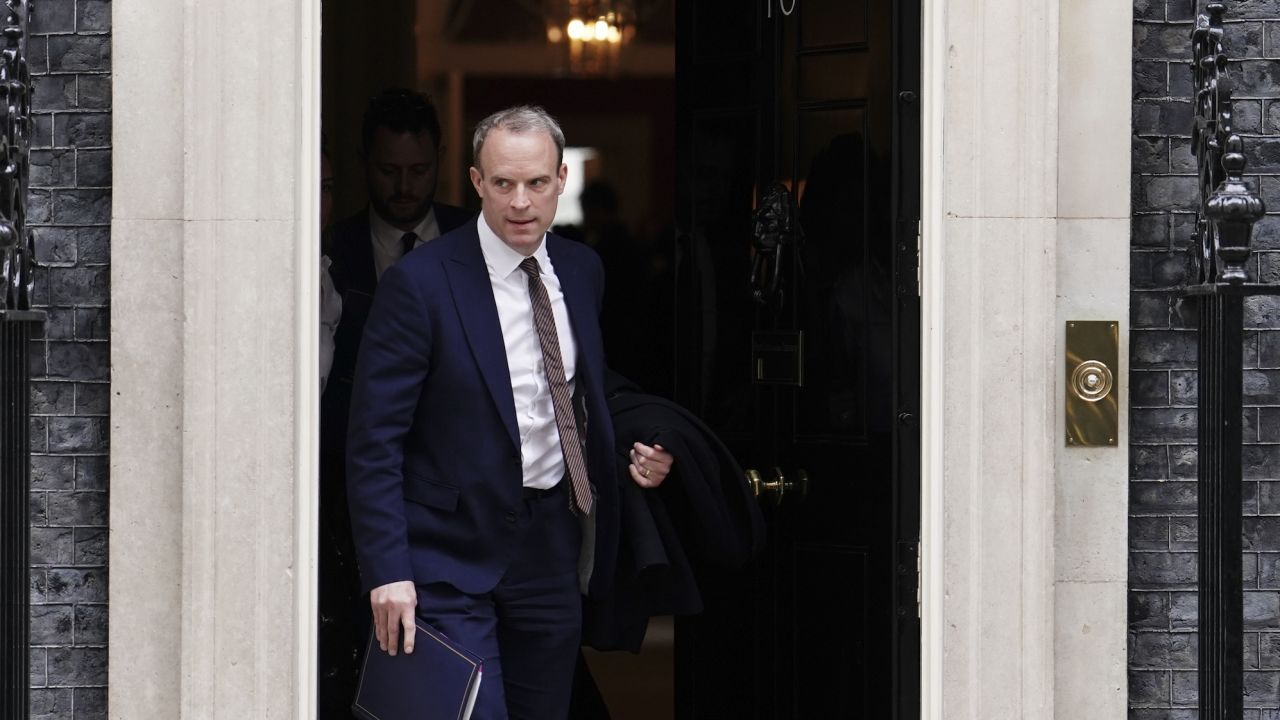
Dominic Raab has held several high-profile posts since joining the government as a junior minister in 2015. Jordan Pettitt/PA Images/Getty Images
British Prime Minister Rishi Sunak suffered a serious blow to his premiership on Friday as one of his closest allies resigned over allegations he bullied officials.
In a resignation letter posted on Twitter on Friday, Dominic Raab said he decided to quit as deputy prime minister and justice secretary after an official inquiry found some of the claims made against him were justified. Sunak said he accepted Raab’s resignation with “great sadness.”
The review into Raab, conducted by independent investigator Adam Tolley, followed eight formal complaints about his behavior while acting as foreign secretary, Brexit secretary and justice secretary.
“I called for the inquiry and undertook to resign, if it made any finding of bullying whatsoever. I believe it is important to keep my word,” he said.
He added that the inquiry into the allegation “dismissed all but two of the claims leveled against me” and “concluded I has not once, in four and a half years, sworn or shouted at anyone, let alone thrown anything or otherwise physically intimidated anyone, nor intentionally sought to belittle anyone.”
The report, published in full after Raab’s resignation on Friday, concluded that “he acted in a way which was intimidating, in the sense of unreasonably and persistently aggressive conduct in the context of a work meeting. It also involved an abuse or misuse of power in a way that undermines or humiliates.”
It went on to say that Raab’s “conduct was experienced as undermining or humiliating by the affected individual, which was inevitable. It is to be inferred that [Raab] was aware that this would be the effect of his conduct; at the very least, he should have been aware.”
Raab also said he believed the report sets a “dangerous precedent in setting the threshold for bullying so low” and said its findings were “flawed.”
Raab held several high-profile posts since joining the government as a junior minister in 2015. Besides serving as deputy prime minister, he was also the justice secretary and Lord Chancellor in Prime Minister Rishi Sunak’s government.
He was the foreign secretary during the Boris Johnson era, but was removed after receiving heavy criticism following the UK withdrawal from Afghanistan. He was on holiday in Greece as the Taliban took control of Afghanistan.
He faced demands for his resignation after it emerged that not long before the fall of Kabul, he asked a deputy to handle an urgent call with the Afghan foreign minister regarding the evacuation of interpreters who had worked with British armed forces. The call never took place.
Keir Starmer, the leader of the opposition Labour Party, criticized Sunak for letting Raab resign, rather than firing him. Speaking to the BBC on Friday, Starmer said the decision showed “weakness from top to bottom” of the government. “There’s a double weakness here. He should never have appointed him and then he didn’t sack him,” he added.